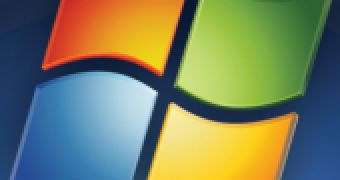Users running the high end editions of Windows also get the premiere language treatment from Microsoft.
The Enterprise and Ultimate SKUs of Windows allow them to access the complete collection of linguistic resources that the Redmond company offers, enabling their OS to be translated in a wide range of languages.
Just head over to the “Download languages for Windows” webpage that the software giant set up to get an idea of the languages that are available for Windows 7 and Windows Vista either as Windows Multilingual User Interface (MUI) Packs or Language Interface Packs (LIPs).
No less than 33 MUI Packs are served directly to Windows Enterprise and Ultimate customers through Windows Update, with LIPs offered for download, provided that the copy of the platform is in the required base language.
At the same time, the vast majority of customers are treated as second class citizens, with access permitted to a single language.
In the context in which Windows 7 Home Premium and Professional are the editions of choice for end users and business customers, the fact that they are refused access to additional language resources should change in the future.
To put it simply, Windows 8 or Windows vNext, whichever you want to call it, needs to bring more flexibility and options when it comes down to the languages available for their copy of the OS.
Multilingual User Interface (MUI) Packs should be available to customers running Home Premium or Professional editions of Windows.
Of course, there should be a differentiator that will still keep SKUs as Ultimate and Enterprise in their high end position.
And the solution is relatively simple. I can’t think of a consumer that would require all 33 MUI Packs on a single machine.
But there are those that could certainly use at least a couple. Here’s one idea, how about letting customers of Windows editions such as Home Premium and Professional install at least one additional language?
The European Union is just one example of a market in which users travel between countries often, and are bound to come across better PC deals, or simply buy a new computer because they need one while on another country.
In this case, they’re stuck with the local language unless they upgrade to the Ultimate edition just to get the one language they need out of 33, because, due to the limitations of LIPs they most probably won’t be able to install one.
Fact is that the functionality is already in Windows. And there are tools that have been made available circumventing the restrictions in order to give almost all Windows 7 and Vista editions the option of installing a MUI Pack.
Microsoft has certainly taken note, and tackled the bypasses by issuing an update which renders a copy of Windows 7 non-genuine if a MUI Pack is installed when it shouldn’t be.
Even if the Windows copy is genuine and the user paid for a license the simple presence of a MUI Pack on a Home Premium edition is equivalent to pirating Windows in the Redmond company’s view.
But this is not the way to resolve the problem. The right way is to democratize languages. To open up more options. To deliver additional flexibility. And if a third-party hack can do it, then Microsoft certainly can too.
If Ultimate SKU users can swap languages seamlessly, then customers running Professional and Home Premium editions should also be able to, of course to a lesser degree, for example 2 languages instead of 33, keeping the distinction between editions essentially intact.
There are of course other possibilities, such as letting users at least default to English from a localized version of Windows. Once they default to English customers could use it as such, or install any LIP offered by Microsoft free of charge.
And in this way, Windows Ultimate and enterprise remain the only two editions which allow access to MUI Packs, but at the same time, users can still get their copy of the OS in another language, or at least in English.
Defaulting Windows to English from a localized version would also allow customers to easily upgrade their platform to a new version. As some of you might know, upgrade between Windows copies in different languages are not allowed at this point in time.
Make sure to also read:

 14 DAY TRIAL //
14 DAY TRIAL //